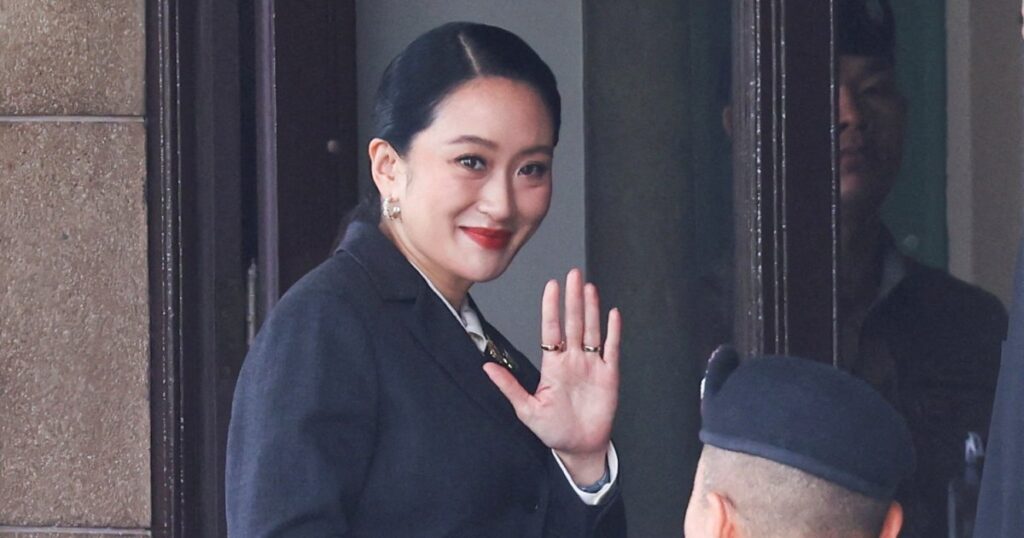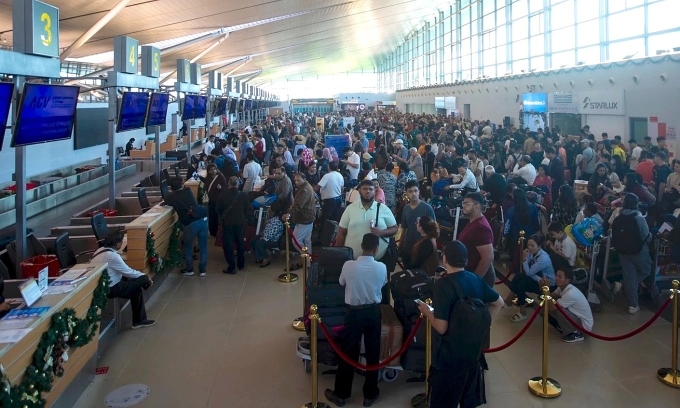
Bangkok, Thailand – In a significant political upheaval, Thailand’s Constitutional Court has removed suspended Prime Minister Paetongtarn Shinawatra from office. The court found her guilty of ethical misconduct related to a controversial phone call with Cambodia’s former leader, Hun Sen. This decision, announced on Friday, marks Paetongtarn as the fifth Thai prime minister to be ousted by judicial intervention since 2008.
The nine-judge panel concluded that the 39-year-old leader had “seriously violated” the ethical standards expected of a prime minister. The court cited her June phone call with Hun Sen, during which she discussed strategies to de-escalate a deadly border conflict, as a breach of conduct. The court further criticized her for lacking honesty and integrity, accusing her of prioritizing personal interests over national welfare.
Controversial Call and Its Consequences
In the leaked phone conversation, Paetongtarn was heard referring to Hun Sen as “uncle” and disparaging a senior Thai army commander, labeling him an “opponent.” This incident occurred amidst a tense border dispute between Thailand and Cambodia, which escalated into armed clashes resulting in numerous casualties and the displacement of tens of thousands on both sides.
The conflict, which spiraled out of control, was eventually halted by a Malaysia-brokered ceasefire on July 29. However, the damage had already been done, and the court’s decision to suspend Paetongtarn on July 1 was a precursor to her eventual removal.
Political Turmoil and Historical Context
Paetongtarn’s dismissal is the latest chapter in Thailand’s tumultuous political landscape, characterized by frequent changes in leadership and judicial interventions. Since the 2006 military coup that ousted her father, Thaksin Shinawatra, the country has witnessed a series of political upheavals.
“This ruling underscores the ongoing instability in Thai politics, where judicial decisions often play a pivotal role in shaping the political arena,” said Dr. Supachai Panitchpakdi, a prominent Thai political analyst.
Thaksin, a billionaire and former prime minister himself, has been a polarizing figure in Thai politics. His influence continues to loom large, with his family often at the center of political controversies. The recent verdict against Paetongtarn is part of a broader legal battle involving the Shinawatra family.
Ongoing Legal Challenges
The verdict against Paetongtarn is the second of three high-profile cases involving her and her father. Last week, Thaksin was acquitted of charges related to insulting Thailand’s monarchy. However, he still faces legal scrutiny over his 2023 hospital stay, which occurred while he was serving a reduced sentence for corruption.
These legal entanglements highlight the Shinawatra family’s enduring influence and the challenges they face within the Thai judicial system. The court’s decisions have far-reaching implications, not only for the family but also for Thailand’s political future.
Implications and Future Prospects
The removal of Paetongtarn Shinawatra raises questions about the future of Thai politics. With the country’s leadership in flux, the path forward remains uncertain. Political analysts suggest that this decision could lead to increased political polarization and potential unrest.
“The court’s ruling may exacerbate existing tensions between different political factions, potentially leading to further instability,” warned Professor Chulalongkorn, a noted expert on Southeast Asian politics.
As Thailand navigates this period of uncertainty, the international community will be watching closely. The country’s political stability is crucial not only for its citizens but also for regional dynamics in Southeast Asia.
Moving forward, the Thai government will need to address the underlying issues that have led to repeated political crises. Building a stable and transparent governance framework will be essential to restoring public confidence and ensuring long-term stability.







